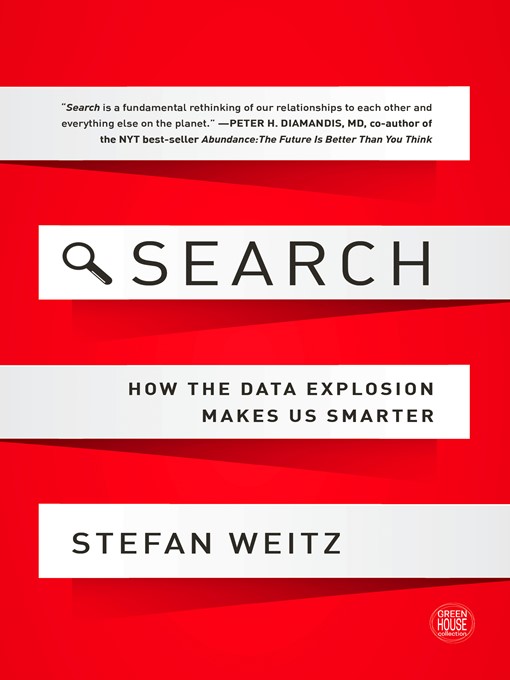
Search
How the Data Explosion Makes Us Smarter
کتاب های مرتبط
- اطلاعات
- نقد و بررسی
- دیدگاه کاربران
نقد و بررسی

September 29, 2014
Weitz—director of Bing, Microsoft’s search engine—redefines the term “search” in this thought-provoking debut. He envisions search as a virtual entity that will expand well beyond traditional online information retrieval systems and into a digital realm he refers to as the “hinge,” which will link the unique capabilities of people and machines, allowing search to work more like the human brain. If one bar is too loud for you and your companion, the search system on your personal device could interact with other systems to let you know the establishment next door is quieter and more intimate. Real-time data, using a series
of sensors, also could inform you how long lines are at Starbucks or where the nearest hospital’s emergency room is. These are just two examples of countless search possibilities that exist, Weitz claims. The author acknowledges concerns regarding security and privacy issues and development of such search capacity. While Weitz’s writing is loaded with jargon and assumes readers have more than just peripheral knowledge of how data works, he offers a heady argument that encourages readers to think abstractly about future technologic advancements.

November 1, 2014
Weitz (director of search at Microsoft) uses a definition of search that goes far beyond the idea of a query returning an answer or a link to an Internet site. Instead, this book is about how expert computer systems have the potential to allow us to efficiently utilize the interconnected web of digital data to make decisions and streamline our lives. Ultimately, the author envisions that this data--whether explicitly given, observed by sensors and personal devices, or inferred from analyzing correlations between past behaviors--will be linked and allow systems to anticipate human desires, nudge us toward beneficial outcomes, or even take actions on our behalf. Weitz is unabashedly a technoutopian and believes that the scenario he imagines will increase our efficiency and happiness. While the text briefly acknowledges that there are privacy and cultural concerns, the main obstacles addressed are technical (how to let devices in the "Internet of Things" talk to one another) and commercial (how to monetize ubiquitous search). VERDICT An eye-opening look at potential developments in computer-augmented living for gadget lovers and sociologists of technology.--Wade M. Lee, Univ. of Toledo Lib.
Copyright 2014 Library Journal, LLC Used with permission.

























دیدگاه کاربران